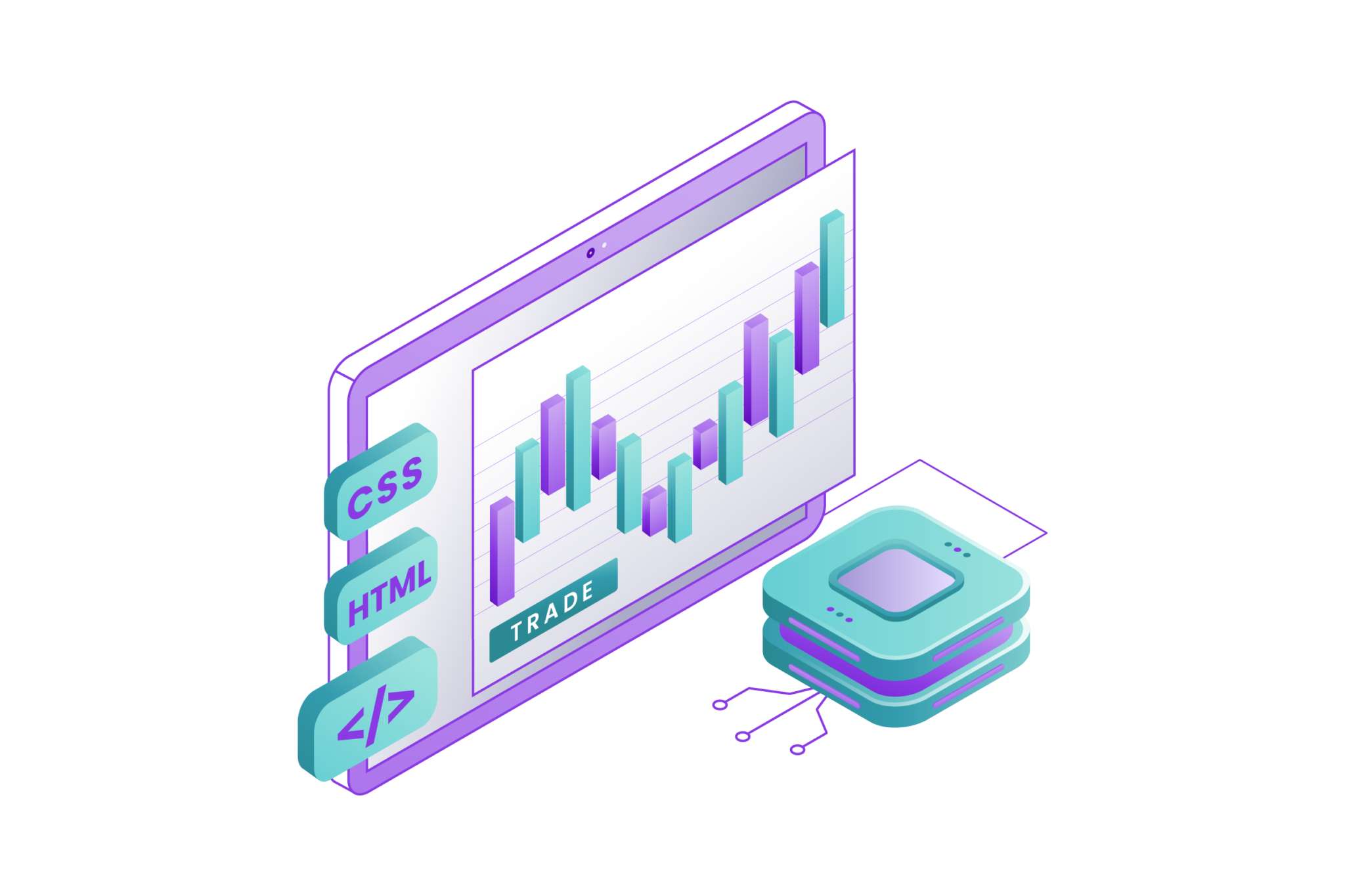
Quant Computer Science is a rapidly growing field that combines quantitative analysis, computing, and financial expertise. It plays a crucial role in areas like finance, algorithmic trading, and risk management. If you’re interested in applying math and computer science to solve complex financial problems, this might be the right path for you.
Getting started in Quant Computer Science requires a solid foundation in several key areas. These include mathematics, programming, and understanding financial markets. This guide will walk you through these essentials and help you plan your journey. As the demand for skilled quants increases, having a clear understanding of the required skills and resources can give you a head start. In this article, we will outline the steps you need to take, the topics you should focus on, and the tools you will use to build your expertise.
What is Quant Computer Science?

Quant Computer Science involves the use of mathematical models and computational techniques to analyze financial markets and make predictions. These predictions are used in various industries, especially in finance, to manage risks, create trading strategies, and develop algorithms that execute trades.
Also Read: FDV vs Market Cap: Understanding the Key Differences
This field blends computer science with financial theory. Quants, or quantitative analysts, typically have strong backgrounds in areas like statistics, machine learning, and programming. They build algorithms that can process large amounts of data and make decisions based on that data.
Quants are highly sought after in fields like investment banking, hedge funds, and insurance. Their ability to create accurate models and predict market trends makes them invaluable in high-stakes financial environments. This role demands both strong analytical skills and practical programming knowledge.
Skills You Need to Succeed in Quant Computer Science

To start a successful career in Quantitative Computer Science, or “quant” as it is commonly referred to, there are several essential skills you must master. This field is highly competitive, requiring a combination of mathematical proficiency, strong programming abilities, and a deep understanding of financial markets. Let’s break down each of these core skills in more detail.
Advanced Mathematics
Mathematics lies at the heart of quantitative analysis. Quants are expected to be highly skilled in areas such as calculus, linear algebra, probability, and statistics. Calculus is essential for understanding rates of change and optimization problems, while linear algebra is crucial for working with vectors and matrices—often used in portfolio analysis and pricing models. Probability and statistics are indispensable for modeling uncertainty and risk, key factors in financial decision-making. The deeper your understanding of these mathematical concepts, the better equipped you’ll be to create robust and reliable models that can predict market trends or assess risk in various financial instruments.
Beyond this, you may need to delve into more specialized areas like stochastic calculus or differential equations—both of which play a major role in the pricing of derivatives. In essence, the more mathematical tools you have in your toolkit, the more versatile you’ll be as a quant.
Programming Skills
Strong programming skills are just as important as mathematical ability in the world of quant finance. Most quant tasks, such as backtesting models, running simulations, and performing data analysis, require automation, which is why programming proficiency is a must. Python is perhaps the most widely used programming language in this field due to its flexibility and the extensive libraries it offers, such as NumPy, Pandas, and Scikit-learn, which simplify data manipulation and analysis.
However, Python is not the only language that quants use. C++ is also highly valued for its execution speed, making it useful in high-frequency trading or other time-sensitive financial strategies. R and MATLAB are popular for statistical analysis and are frequently used in academic research as well as industry applications. Knowing more than one language will increase your adaptability in different quant roles and give you an edge over other candidates.
Additionally, proficiency in tools like SQL for database management or VBA for Excel automation is also highly beneficial. Being able to work with large data sets and extract meaningful insights from them is a crucial aspect of a quant’s day-to-day tasks.
Financial Markets Knowledge
While technical skills are essential, understanding how financial markets work is equally important for quants. The ability to apply your technical knowledge in real-world financial scenarios makes the difference between theory and practical success. A solid grasp of market dynamics helps in creating models that are not only mathematically sound but also relevant to current market conditions.
You’ll need to be familiar with topics like risk management, portfolio optimization, and derivative pricing. These are fundamental aspects of how quants contribute to financial institutions, helping them manage risks or increase returns. Risk management, in particular, is a crucial area, where quants develop strategies to mitigate losses during market downturns. Portfolio optimization involves the use of mathematical models to maximize returns based on a given level of risk, while derivative pricing requires you to understand complex instruments like options and futures.
Understanding the macroeconomic factors that affect market behavior, as well as how different asset classes (stocks, bonds, commodities) interact with each other, will also be beneficial. In essence, a well-rounded quant doesn’t just rely on mathematical models—they understand how those models relate to the broader financial system.
Communication and Problem-Solving Skills
Another often overlooked but essential skill is effective communication. Quants frequently need to explain complex models and data to non-technical stakeholders such as portfolio managers or executives. You must be able to present your findings in a way that is clear, concise, and actionable. Strong problem-solving skills are also key, as much of a quant’s role revolves around identifying financial problems and developing innovative models to address them.
Continuous Learning
Quantitative finance is a rapidly evolving field. New models, algorithms, and technologies are constantly emerging. As such, the ability and willingness to continuously learn are invaluable. Many quants pursue additional certifications, such as the CFA (Chartered Financial Analyst) or FRM (Financial Risk Manager), to stay competitive and deepen their understanding of both financial theory and practice.
Succeeding in quant computer science requires a broad range of skills. Mastery of advanced mathematics provides the foundation, programming brings the models to life, and financial market knowledge ensures their real-world application. Coupled with strong communication and problem-solving skills, and a commitment to lifelong learning, you’ll be well-equipped to excel in this challenging but rewarding field.
Key Tools and Platforms for Quant Computer Science

As you dive into the world of Quant Computer Science, you’ll need to familiarize yourself with a variety of tools and platforms. These will be essential for developing, testing, and deploying your quantitative models and trading algorithms. Mastery of these tools will not only allow you to work efficiently but also give you the edge in managing and analyzing vast amounts of data. Here are some of the most important tools and platforms to get acquainted with.
Programming Languages and Libraries
The foundation of any quantitative work begins with programming. Python has become the go-to language for quantitative finance due to its flexibility and the vast ecosystem of libraries available for scientific computing. Key libraries include:
- NumPy: This library allows for efficient handling of large, multi-dimensional arrays and matrices of numeric data. It is ideal for performing fast mathematical computations.
- Pandas: An essential tool for data manipulation and analysis. It provides easy-to-use data structures like DataFrames, which allow you to handle time-series data and perform operations such as slicing, dicing, filtering, and aggregating data.
- SciPy: Built on NumPy, SciPy adds functionality for optimization, integration, interpolation, and other advanced scientific and mathematical functions.
- Matplotlib and Seaborn: These libraries provide tools to visualize your data and results, making it easier to spot trends or anomalies that may not be apparent from numbers alone.
Becoming proficient in these libraries is a must for performing statistical analysis, creating models, and visualizing outcomes. Moreover, these tools are heavily used across a variety of industries, making them versatile assets in your quantitative toolkit.
Backtesting and Algorithmic Trading Platforms
Once you’ve built your algorithms, the next step is to validate their performance through backtesting. Here are two platforms to consider:
- QuantConnect: This platform stands out because it allows you to backtest strategies using historical data, as well as deploy them live in multiple languages, including Python and C#. QuantConnect offers access to a variety of data sources, making it a comprehensive tool for developing and refining trading algorithms. You can even connect to brokerages and execute live trades.
- Backtrader: If you prefer a more open-source approach, Backtrader is a powerful backtesting platform that allows for great flexibility in building and testing custom trading strategies. It integrates well with Python and supports a wide range of data sources, allowing you to experiment with different types of market data.
Both platforms give you the ability to simulate real-world trading environments, providing valuable feedback before deploying your algorithms into live markets.
Financial Data Sources
No quantitative model is complete without reliable data. One of the most widely-used tools for accessing financial data is the Bloomberg Terminal. Although it comes with a hefty price tag, the Bloomberg Terminal provides real-time data, analytics, and news—essential for high-frequency traders and finance professionals. It supports extensive datasets across asset classes, including equities, fixed income, commodities, and currencies.
For those just starting out or seeking free alternatives, tools like Yahoo Finance and Google Finance offer basic access to historical stock data. While not as robust as Bloomberg, they provide enough information for basic analysis and backtesting.
Additionally, platforms like Quandl offer access to a wide array of datasets, from financial market data to alternative data, such as real estate prices or global economic indicators. Many datasets on Quandl are free, while others require a subscription.
Cloud Computing and Data Management
Handling large datasets or running complex simulations requires significant computing power. Cloud platforms like Amazon Web Services (AWS), Microsoft Azure, and Google Cloud Platform (GCP) provide scalable computing resources for running algorithms, storing data, and performing complex analysis. For instance, you can use AWS EC2 to run your trading algorithms in real-time or AWS S3 for cost-effective data storage.
If you’re working on data-heavy projects, learning how to leverage these cloud platforms will help you handle the vast amounts of data often involved in quantitative finance. They also allow you to scale your operations as you take on more complex projects or increase the frequency of your trades.
Git and Version Control
Quantitative finance often involves working in teams, making version control crucial. Git, along with platforms like GitHub or GitLab, is an essential tool for tracking changes in your codebase and collaborating with others. It allows you to experiment with different versions of your algorithms without losing any work and enables seamless collaboration with other developers and analysts on your team.
Learning and Staying Updated
Finally, staying current with the latest trends and techniques in Quant Computer Science is crucial. Resources like QuantStart, Quantitative Finance Stack Exchange, and Kaggle offer a wealth of tutorials, datasets, and communities where you can ask questions and share knowledge.
Mastering these tools and platforms will not only enhance your quantitative skills but also open the door to more advanced research and real-world application in algorithmic trading and data analysis. By continuously honing your expertise with these resources, you’ll be well-prepared to tackle the challenges of Quant Computer Science.
Study Path for Aspiring Quants
If you want to succeed in Quant Computer Science, it’s important to approach your learning in a structured way. A step-by-step study path will help you build your skills systematically and efficiently. Here’s a basic roadmap:
Master Core Mathematics
Start by focusing on calculus, linear algebra, and probability. These are essential for developing financial models. You can find plenty of free online resources, including tutorials and video lectures, that cover these topics in detail.
Learn to Program
Python should be your first programming language. It’s widely used in the quant industry due to its simplicity and powerful data-handling capabilities. Follow tutorials that focus on data analysis and algorithm development to get a feel for how programming applies to Quant Computer Science.
Understand Financial Markets
Books and online courses on finance will help you learn the ins and outs of financial markets. Focus on areas like risk management, options, and derivatives. This will give you the necessary context for applying your technical skills in real-world scenarios.
Take Part in Quant Competitions
Participating in online quant competitions is a great way to gain practical experience. Websites like QuantConnect or Kaggle host regular challenges that allow you to test your skills in building and backtesting algorithms.
Career Paths in Quant Computer Science
Quant Computer Science offers several career paths, each with its own focus and set of challenges. The most common roles include quantitative analyst, quantitative developer, and risk analyst.
Also Read: DEX Liquidity: The Ultimate Guide to Understanding
Quantitative Analyst
A quant analyst develops mathematical models used to predict market trends and make investment decisions. This role often involves working closely with traders and investment managers to optimize trading strategies.
Quantitative Developer
Quant developers create the software and systems that run quantitative models. They need strong programming skills and an understanding of software architecture. This role bridges the gap between finance and technology.
Risk Analyst
Risk analysts focus on identifying and managing financial risks. They use quantitative techniques to assess potential losses and devise strategies for mitigating those risks.
Conclusion
Getting started in Quant Computer Science may seem overwhelming, but by following a structured learning path and focusing on core skills, you can make steady progress. Mathematics, programming, and a strong understanding of financial markets are the pillars of success in this field.
By mastering these areas, you will be able to develop the models and algorithms used in finance to manage risks and drive investment strategies. Whether you aim to work in algorithmic trading or risk management, the demand for quants continues to grow, offering a wide range of opportunities.
Start with small steps, and gradually build your expertise. With persistence and a commitment to learning, you can become a skilled professional in Quant Computer Science, capable of making a significant impact in the finance world.
Disclaimer: The information provided by Quant Matter in this article is intended for general informational purposes and does not reflect the company’s opinion. It is not intended as investment advice or a recommendation. Readers are strongly advised to conduct their own thorough research and consult with a qualified financial advisor before making any financial decisions.

Joshua Soriano
As an author, I bring clarity to the complex intersections of technology and finance. My focus is on unraveling the complexities of using data science and machine learning in the cryptocurrency market, aiming to make the principles of quantitative trading understandable for everyone. Through my writing, I invite readers to explore how cutting-edge technology can be applied to make informed decisions in the fast-paced world of crypto trading, simplifying advanced concepts into engaging and accessible narratives.
- Joshua Soriano#molongui-disabled-link
- Joshua Soriano#molongui-disabled-link
- Joshua Soriano#molongui-disabled-link
- Joshua Soriano#molongui-disabled-link
